Abstract
The observation that babies with troublesome crying improve quickly in hospital suggested that, if true, a common, quickly reversible, factor may operate. Histories from parents of such babies suggest that much work goes into trying to console them. It is hypothesised that this may lead to excessive stimulation and the improvement seen in hospital reflects a reduction in stimulation. Two studies were undertaken. (1) Carers were asked to agree to randomisation of their infants to hospital or home management. Those at home were advised to reduce stimulation. A 10 point questionnaire was used to describe distress in mothers of subjects and age matched controls. (2) A randomised controlled study compared advice to reduce stimulation with an empathic interview using a +5 to -5 scale to chart change. In the first study too few subjects agreed to randomisation and thus a rigorous study to validate the observation could not proceed. There was good evidence, however, that crying improved. Results from the home group justified the second study. The median distress score for subjects was 7/10 and for controls 3/10 (p less than 0.001). In the second study at seven days, 18/22 subjects given advice scored +2 or better on the change chart for crying, compared with 7/20 of those who did not receive advice (p less than 0.01). After the latter received advice 79% improved (95% confidence interval 61 to 97%). For babies under 12 weeks, the customary upper limit for a diagnosis of colic, 14/15 subjects advised improved compared with 6/12 who were not advised (p less than 0.02). These studies have shown that infants with troublesome crying admitted to hospital seem to improve quickly as do those whose carers are advised to reduce stimulation.
Full text
PDF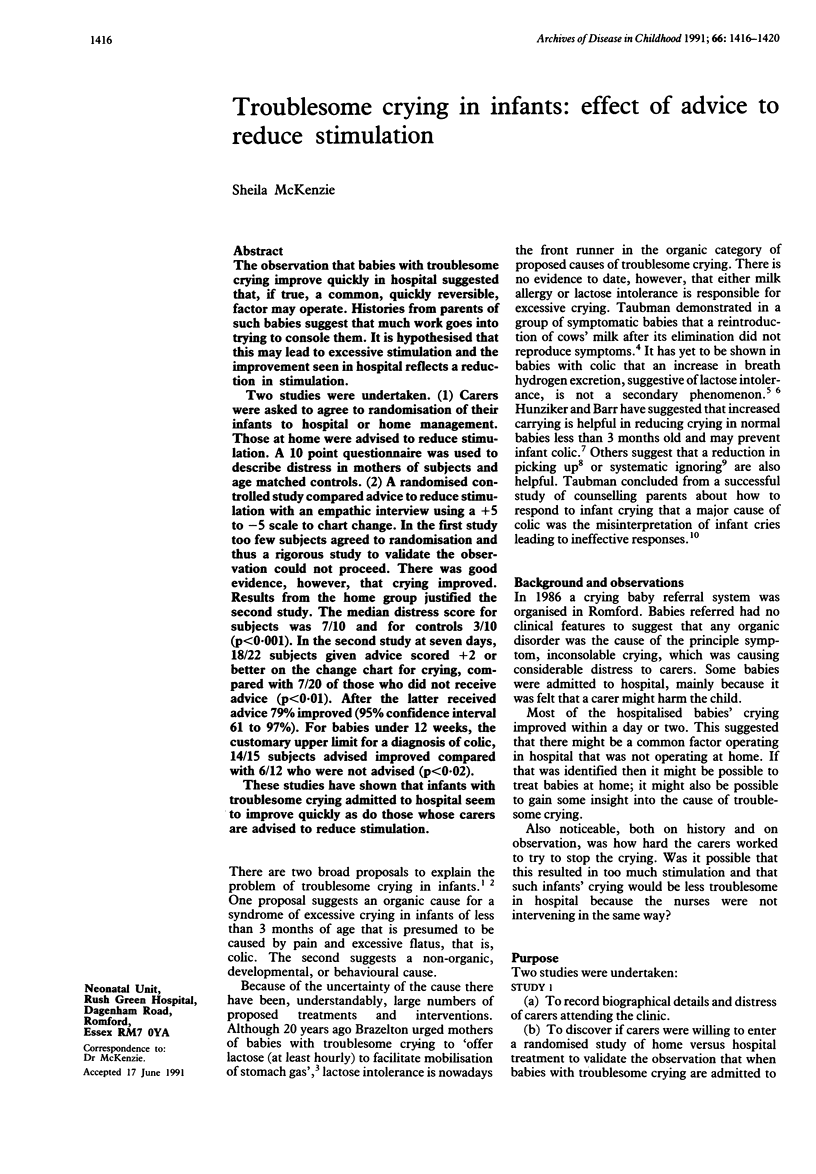
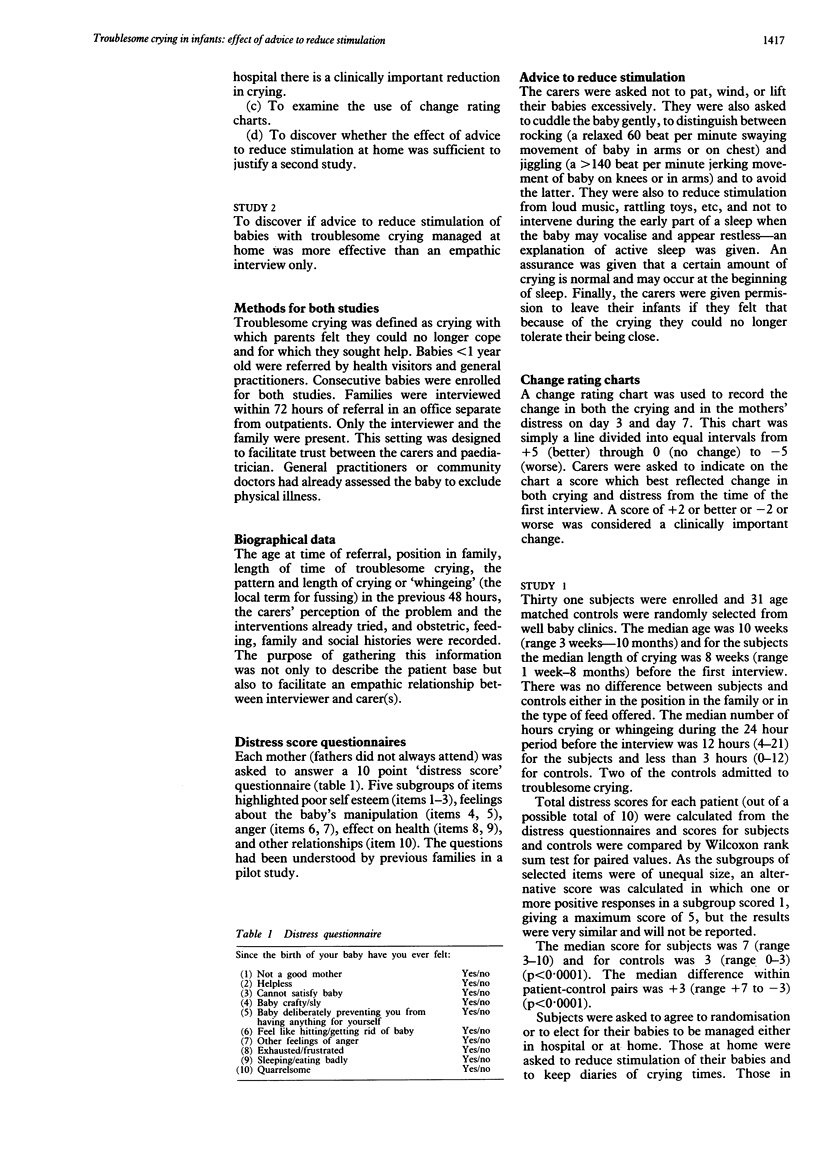
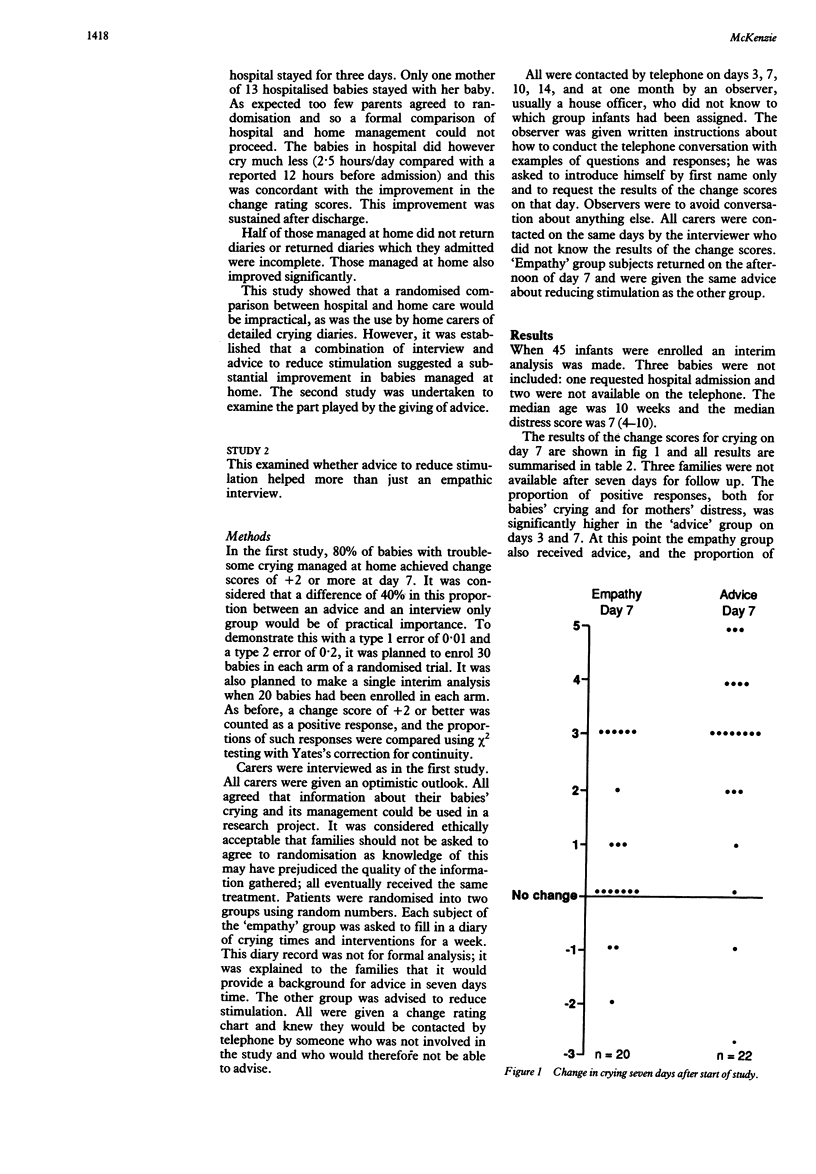
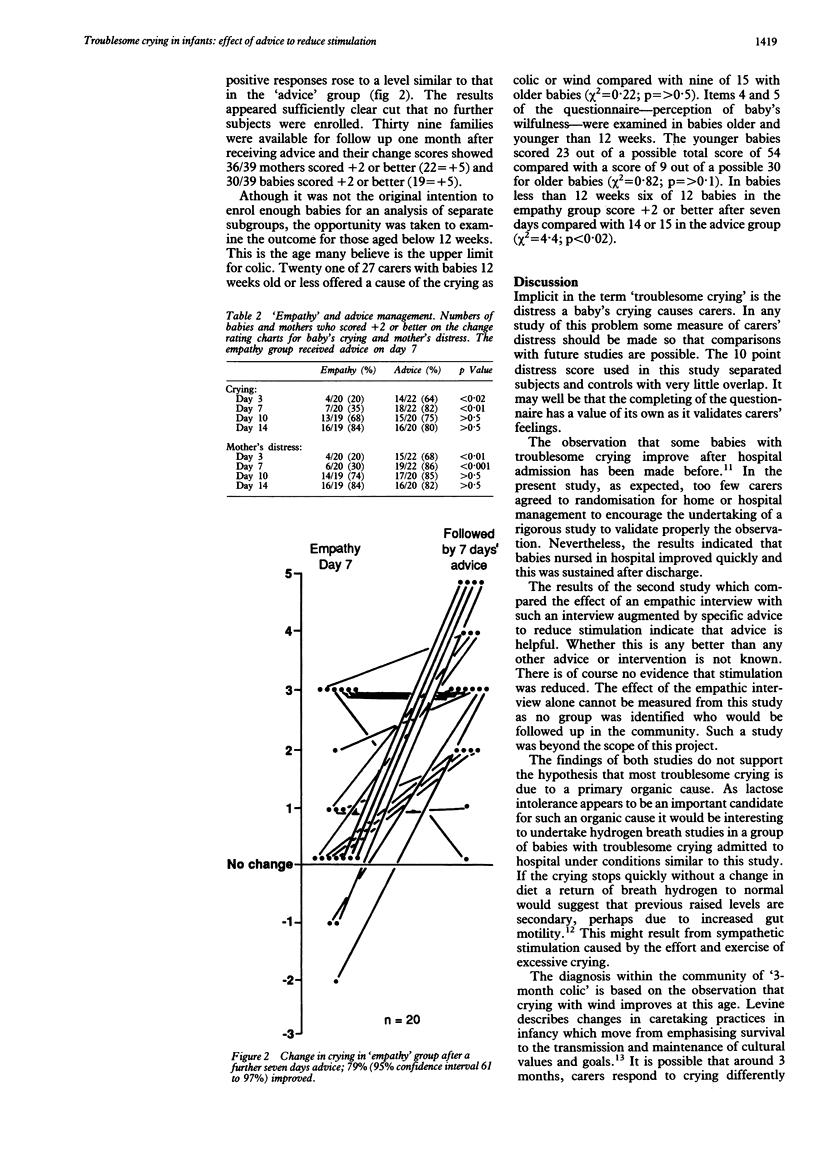
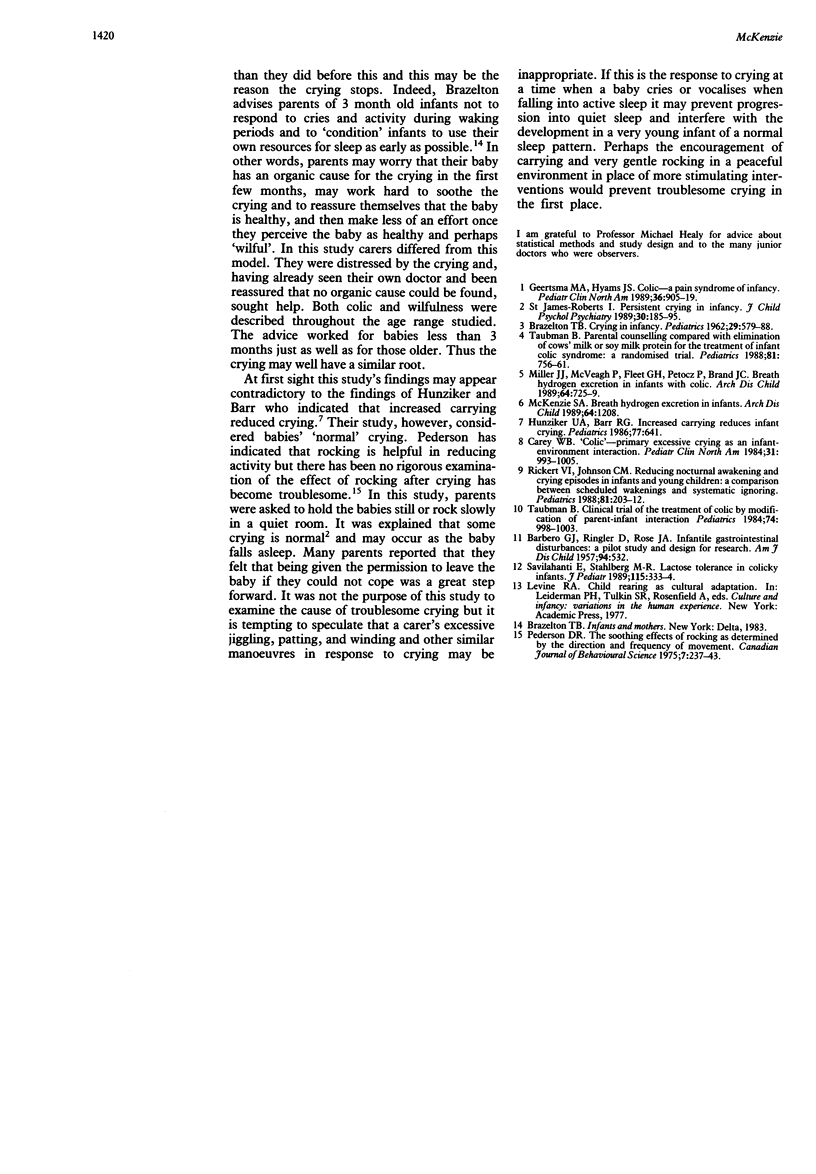
Selected References
These references are in PubMed. This may not be the complete list of references from this article.
- BRAZELTON T. B. Crying in infancy. Pediatrics. 1962 Apr;29:579–588. [PubMed] [Google Scholar]
- Carey W. B. "Colic"--primary excessive crying as an infant-environment interaction. Pediatr Clin North Am. 1984 Oct;31(5):993–1005. doi: 10.1016/s0031-3955(16)34681-8. [DOI] [PubMed] [Google Scholar]
- Geertsma M. A., Hyams J. S. Colic--a pain syndrome of infancy? Pediatr Clin North Am. 1989 Aug;36(4):905–919. doi: 10.1016/s0031-3955(16)36728-1. [DOI] [PubMed] [Google Scholar]
- Hunziker U. A., Barr R. G. Increased carrying reduces infant crying: a randomized controlled trial. Pediatrics. 1986 May;77(5):641–648. [PubMed] [Google Scholar]
- McKenzie S. Breath hydrogen excretion in infants with colic. Arch Dis Child. 1989 Aug;64(8):1208–1208. doi: 10.1136/adc.64.8.1208-a. [DOI] [PMC free article] [PubMed] [Google Scholar]
- Miller J. J., McVeagh P., Fleet G. H., Petocz P., Brand J. C. Breath hydrogen excretion in infants with colic. Arch Dis Child. 1989 May;64(5):725–729. doi: 10.1136/adc.64.5.725. [DOI] [PMC free article] [PubMed] [Google Scholar]
- Rickert V. I., Johnson C. M. Reducing nocturnal awakening and crying episodes in infants and young children: a comparison between scheduled awakenings and systematic ignoring. Pediatrics. 1988 Feb;81(2):203–212. [PubMed] [Google Scholar]
- Savilahti E., Ståhlberg M. R. Lactose tolerance in colicky infants. J Pediatr. 1989 Aug;115(2):333–334. doi: 10.1016/s0022-3476(89)80104-0. [DOI] [PubMed] [Google Scholar]
- Taubman B. Clinical trial of the treatment of colic by modification of parent-infant interaction. Pediatrics. 1984 Dec;74(6):998–1003. [PubMed] [Google Scholar]
- Taubman B. Parental counseling compared with elimination of cow's milk or soy milk protein for the treatment of infant colic syndrome: a randomized trial. Pediatrics. 1988 Jun;81(6):756–761. [PubMed] [Google Scholar]


